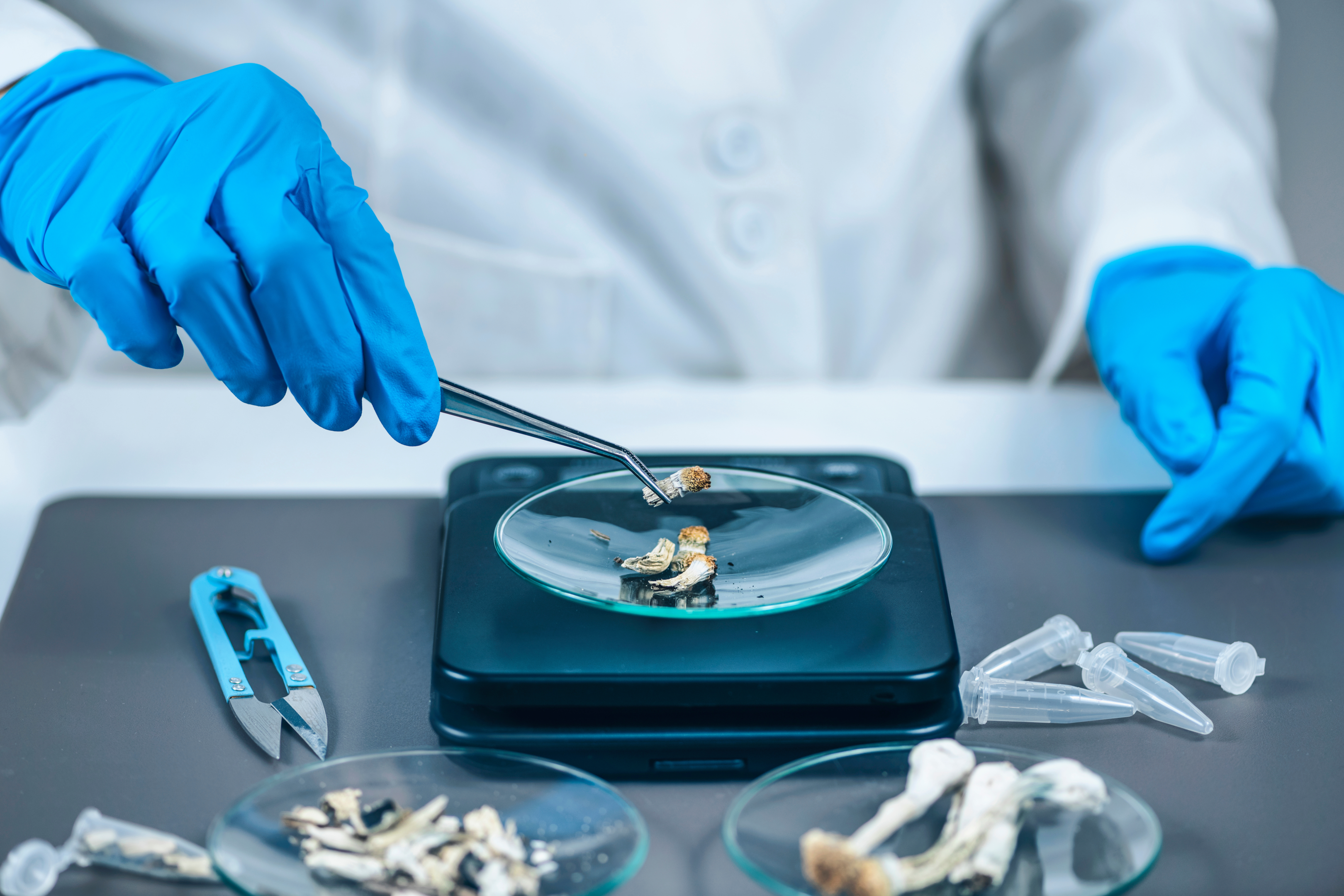
In a groundbreaking move, the Department of Veterans Affairs is turning a new leaf in mental health care, particularly for those suffering from posttraumatic stress disorder (PTSD) and depression. This initiative marks a significant shift in how federal agencies approach mental health issues, especially among military veterans.
The focus is now on exploring the potential of psychedelic studies involving substances like MDMA and psilocybin, traditionally seen as recreational drugs, for treating PTSD and treatment-resistant depression.
This pioneering approach reflects a growing recognition of the limitations of conventional therapies and the need for more innovative and effective treatments. By embracing the therapeutic possibilities of these substances, the Department of Veterans Affairs is not only advancing medical science but also offering new hope to thousands of veterans who struggle with the debilitating effects of PTSD and depression.
Veterans Affairs: A New Approach to Mental Health
The Department of Veterans Affairs has long been a cornerstone in providing comprehensive health care and VA benefits to those who have bravely served in the military service. However, addressing the complex mental health challenges, particularly post-traumatic stress disorder and depression, has been an ongoing battle.
This new initiative by the Department of Veterans Affairs represents a significant paradigm shift, moving beyond traditional treatment methods to explore innovative approaches in psychedelic studies.
The veterans administration has recognized that conventional treatments, often centered around selective serotonin reuptake inhibitors and cognitive therapies, do not always yield the desired outcomes for military veterans grappling with severe PTSD and treatment resistant depression.
This acknowledgment has led to a more open-minded approach, considering alternative therapies such as MDMA assisted therapy and psychedelic drug use, which have shown promising results in early clinical trials.
The Broader Impact of Mental Illness
Moreover, the Department of Veterans Affairs is not only focusing on the individual veterans but also considering the broader impact on their family members and communities. Mental health issues, if left untreated or inadequately addressed, can lead to additional complications like substance abuse, suicide attempts, and strained family relationships.
By funding research into psychedelic medicine, the Department of Veterans Affairs is taking a holistic approach to veteran affairs, ensuring that the physical, emotional, and social aspects of veteran health care are addressed. It will be interesting to see the effects of MDMA and Psilocybin for PTSD and depression.
This initiative also aligns with the broader goals of federal agencies in enhancing mental health services and health care systems. The federal government is increasingly recognizing the importance of mental health and is investing in research to find more effective treatments for mental illness. The Department of Veterans Affairs is at the forefront of this change, leading the way in psychedelic research and potentially setting a precedent for other federal agencies to follow.
Psilocybin for PTSD and Depression

Psilocybin, a key component in magic mushrooms, is emerging as a potential game-changer in treating PTSD and mood disorders. The clinical trials and research into psilocybin’s effects have been expanding, with promising results that could revolutionize the way we treat PTSD and related conditions.
A recent study highlighted in PubMed discusses the clinical, legal, and implementation considerations of psychedelic-assisted therapy in military and veterans’ healthcare systems. This review underscores the promising outcomes of psilocybin-assisted therapy in terms of efficacy, safety, tolerability, and durability for PTSD and depression. Notably, significant improvements in depression outcomes were observed after just a single session of psilocybin-assisted therapy. This is particularly relevant for military veterans who often face unique mental health challenges, including PTSD symptoms and mood disorders.
The study also points out that while MDMA-assisted therapy has already been approved by the FDA on an Expanded Access basis for PTSD, psilocybin-assisted therapy is projected to receive FDA approval for depression soon. This marks a significant milestone in the acceptance and integration of psychedelic compounds in mainstream mental health treatment.
Furthermore, the involvement of psilocybin in clinical trials for drug alcohol abuse disorders indicates its potential in addressing a range of mental health issues. The ability of psilocybin to produce significant improvements in mental health conditions with fewer sessions compared to traditional therapies is a notable advantage, especially for many patients who have struggled with long-term treatments.
The exploration of psilocybin in treating PTSD and depression represents a significant shift in the mental health landscape. With ongoing research and impending FDA approvals, psilocybin could soon become a mainstream treatment option, offering new hope and effective relief for those suffering from these debilitating conditions.
MDMA Assisted Therapy: A New Frontier
MDMA assisted therapy represents a groundbreaking shift in the treatment of mental health disorders, particularly post-traumatic stress disorder. This innovative approach, involving the use of psychedelic compounds, is gaining traction as a viable option for many patients who have not found relief through traditional methods.
In clinical trials, particularly in a randomized controlled trial, participants reported significant improvements in their symptoms. This is a crucial development, as it provides empirical support for the efficacy of MDMA assisted therapy. These studies are not just isolated experiments but are part of a broader, population-based study effort to understand the potential of MDMA in treating mental health disorders.
The implications of this research are particularly significant for service members. Military personnel often face unique challenges and stressors that can lead to severe mental health issues. The traditional psychedelic drug therapies, while effective for some, do not always address the complex needs of these individuals. MDMA assisted therapy offers a new avenue for treatment, one that could be more aligned with the experiences and needs of service members.
Moreover, the incorporation of MDMA assisted therapy into treatment options could lead to a more comprehensive range of additional resources for veterans and active service members. This approach acknowledges the need for diverse and individualized treatment plans, moving away from a one-size-fits-all model.
Clinical Trials: The Path to New Treatments

Clinical trials are the cornerstone of advancing medical science, particularly in the realm of mental health and psychedelic studies. These trials are meticulously designed to ensure safety and efficacy, providing critical data that guide medical practices and policies.
In the context of treating PTSD and depression, clinical trials involving substances like MDMA and psilocybin are essential in transforming these compounds from recreational drugs to legitimate therapeutic options.
The process of MDMA administered in a controlled environment, for instance, has been subject to rigorous testing. Clinical trials have shown MDMA’s effects to be promising in reducing PTSD symptoms, with therapeutic effects that are both significant and enduring. The data suggest a substantial improvement in patients who have undergone MDMA assisted therapy.
Moreover, these trials often involve healthy subjects to establish a baseline understanding of the substances’ effects. This approach is crucial in determining the safety profile of these treatments and their potential side effects. The involvement of healthy subjects also helps in understanding the full range of psychedelic drug effects, which is vital for further study and development.
The Role of Federal Agencies
Federal agencies, particularly the Department of Veterans Affairs, play a pivotal role in facilitating and overseeing these clinical trials. Their involvement is not just limited to funding and regulation but also extends to ensuring that the trials are aligned with the broader goals of public health and education benefits.
The Department of Veterans Affairs, for instance, has been instrumental in pushing for further study into psychedelic compounds as potential treatments for mental health disorders. This is part of a larger effort by federal agencies to explore alternative drugs and therapies that could benefit veterans and the general population.
In addition to overseeing clinical trials, these agencies are responsible for disseminating findings and education benefits to the medical community and the public. This includes providing information on the safe use of these substances, potential risks, and the contexts in which they can be beneficial.
The role of federal agencies in the realm of psychedelic research and clinical trials is multifaceted. They are not only regulators but also facilitators and educators, playing a crucial role in how these potential treatments are developed, understood, and eventually integrated into healthcare systems.
Beyond Traditional Treatment
The exploration of MDMA assisted psychotherapy and psilocybin as treatments goes beyond the typical scope of mental illness management. It represents a paradigm shift in understanding and addressing the complex needs of those suffering from PTSD symptoms and depression. This shift is particularly relevant for individuals with severe PTSD, often resulting from a traumatic event or experiences such as those faced by combat veterans.
Traditionally, PTSD has been treated with a combination of psychotherapy and medications like serotonin releasing agents. However, for many, especially those with severe PTSD, these methods have proven insufficient. The exploration of MDMA use in a therapeutic setting offers a new approach. Unlike traditional recreational drug use, therapeutic MDMA use is administered in a controlled, clinical environment, focusing on its potential to treat PTSD effectively.
The potential of these substances to provide relief where conventional treatments have failed is not just promising; it’s a necessary evolution in the way we approach treatment of post-traumatic stress disorder.
This research acknowledges the limitations of current methods and opens the door to more effective ways to treat PTSD and other mental health disorders. As research continues and these treatments become more widely available, they could mark a turning point in how we address the mental health needs of those who have endured the most challenging experiences. The advances in plant medicine are incredible, especially now that we’re looking at utilizing MDMA and Psilocybin for PTSD and depression.
A New Era in Mental Health Treatment

As we reflect on the advancements in treating post-traumatic stress disorder (PTSD), it’s clear that we are entering a new era in mental health care. The initiatives by the United States government, particularly the veterans administration, in exploring alternative methods to treat PTSD represent a significant shift in addressing the aftermath of traumatic events.
The exploration of substances like MDMA and psilocybin for PTSD is not just about offering new options; it’s about providing effective treatment pathways that were previously unattainable for many. This approach is a testament to the evolving understanding of mental health, especially in how we address disorders like PTSD, which have long challenged the medical community.
The journey towards these new treatment methods has been fueled by the courage to explore the unknown and the determination to provide better care for those who have suffered. As we move forward, it’s essential to continue this momentum, ensuring that these new treatments are accessible, safe, and effective for all who need them.